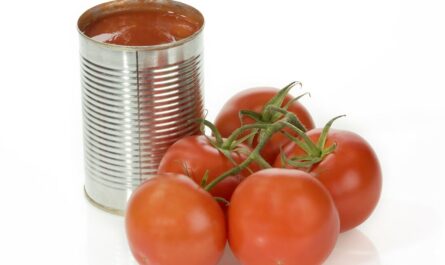Spirulina is a type of blue-green algae that has been consumed by humans for centuries. It is loaded with nutrients and has significant health benefits. With climate change impacting food security and sustainability becoming more important, spirulina could play a key role as a superfood of the future.
What is Spirulina?
Spirulina is a cyanobacteria that grows in alkaline lakes and rivers across the world. It was harvested and eaten by the Aztecs in Mexico as early as 900 AD. Farming of spirulina became more commercialized in the 1950s when it was first cultivated in Japan and other parts of Asia.
Spirulina has a spiral shape and hence gets its name. It is classified scientifically as Arthrospira platensis or Arthrospira maxima depending on the variety. Spirulina grows in freshwater and has a bluish-green color when dried. It has a mild, slightly sweet flavor when consumed.
Nutritional Powerhouse
Spirulina is one of the most nutritious foods on the planet. It is 65% complete protein and is a complete source of all essential amino acids. It is also loaded with B vitamins like B1, B2, B3 and B9.
Spirulina is very high in iron, containing four times as much iron as spinach. It is also rich in magnesium, manganese, copper, zinc and selenium. Furthermore, spirulina contains essential fatty acids like GLA and is a good source of beta-carotene and other carotenoids.
Health Benefits of Spirulina
The high nutritional profile of spirulina translates to significant health benefits. Some key health benefits of spirulina include:
– Immune function support – The antioxidants, vitamins and minerals in spirulina help boost immunity. Research shows it may help reduce risk of infections.
– Blood sugar regulation – Studies show spirulina may help regulate blood sugar levels and benefit those with diabetes or prediabetes.
– Heart health – Pigments called phycocyanin may help lower cholesterol and blood pressure. The high omega-3s also aid heart health.
– Anti-inflammatory effects – Compounds in spirulina like C-phycocyanin act as anti-inflammatory agents. This may benefit conditions like arthritis.
– Cancer risk reduction – Antioxidants in spirulina help fight free radicals. Some research links spirulina to reduced cancer risk or growth inhibition of cancer cells.
– Brain and nerve health – Spirulina is a good source of B vitamins and antioxidants linked to brain and nerve health. Some studies show it may benefit mood and cognitive function.
Environmental and Sustainability Benefits
Beyond the health benefits, Spirulina cultivation has significant environmental benefits. Spirulina farms can actually remove ammonia, phosphorus and other pollutants from wastewater through the process of phytoremediation. This helps clean water bodies.
Cultivating spirulina also requires far less water than other crops. It has a much higher yield per acre than traditional crops. With climate change threatening food security, spirulina is a sustainable superfood that can be grown year-round regardless of weather conditions.
Future of Spirulina
Due to rising health awareness and focus on sustainable foods, the spirulina market is growing globally at over 7% each year. It is projected to reach $1.2 billion by 2027 according to one report.
New technologies are allowing more controlled farming of spirulina indoors and reducing costs. As research further establishes health benefits and it gets incorporated into more foods and supplements, spirulina is poised to transition from niche superfood to mainstream supplement. With the climate crisis looming, spirulina’s environmental advantages will become more important. In the future, it could play a key role in addressing nutrition, health and sustainability challenges worldwide.
Spirulina is a nutrient-dense algae with significant health benefits backed by research. With its high concentration of protein, vitamins, antioxidants and omega-3s, it acts as a functional food. Beyond nutrition, spirulina farming has environmental advantages that make it a sustainable superfood for the future. As awareness grows, spirulina seems positioned to take off as a key ingredient in foods, drinks and supplements globally. Its potential to benefit both people and the planet make it a superfood worth exploring.
*Note:
1. Source: Coherent Market Insights, Public sources, Desk research
2. We have leveraged AI tools to mine information and compile it



